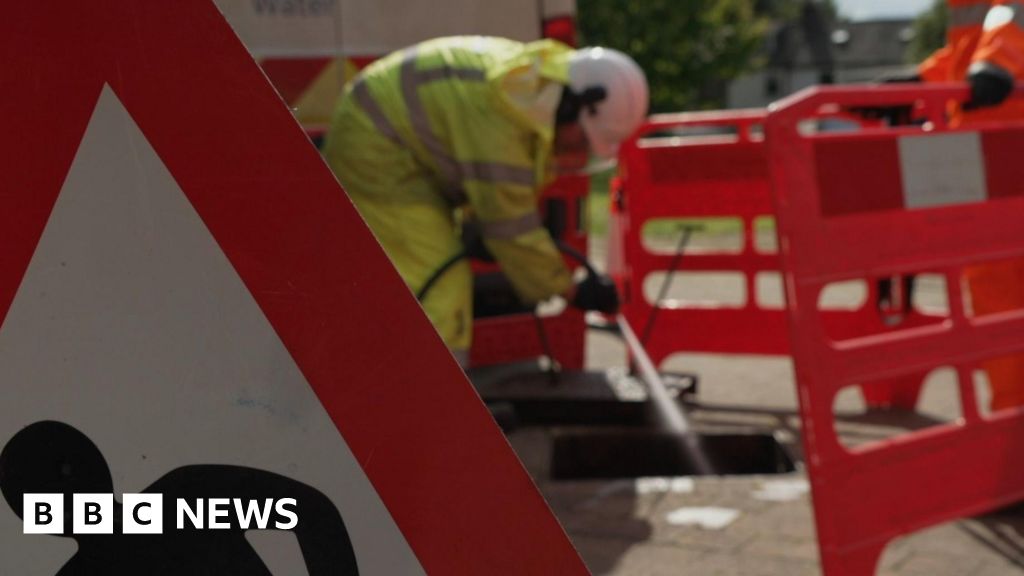Kirk EnglandSouth West environment and tourism correspondent
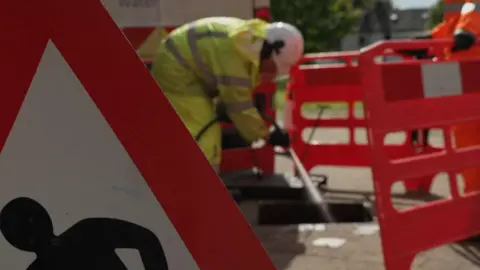 BBC
BBC
AI is being used to help identify changes in water levels in the network that could indicate if a blockage is developing in a sewer
A trial that uses artificial intelligence (AI) to predict if sewers are becoming blocked has helped cut pollution, South West Water has said.
The AI analysed data from 12,000 sensors on the network, monitoring how water levels were rising and falling, to help determine if a sewer is blocked and could be about to overflow, project leaders said.
“We estimate around 200 pollutions have been prevented” said Helen Dobby, from SWW, adding the system “gives us an extra 12,000 pairs of eyes on our network”.
The company said the programme was part of plans to raise environmental performance after it received a “requires improvement” rating from the utility regulator.
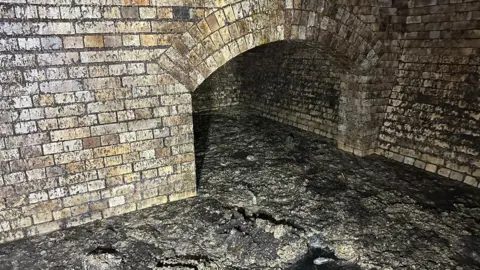 SWW
SWW
AI is being used to analyse water level data from sensors in the sewerage network to help identify blockages as they develop
As part of the trial developed over two years, AI was also being used process hours of CCTV footage of sewage infrastructure to look for defects or blockages in waste water pipes, bosses said.
“It’s much faster at doing the mundane tasks it would take people on site a lot of time to do”, said Joshua Myrans, data scientist at SWW, who started looking at how AI could be used to identify sewer problems when he was a PhD student.
“The AI is trained on images labelled by humans… Operatives are free to survey more of the network and catch more problems before they occur.”
The trial comes as South West Water’s performance continues to face scrutiny.
Failures over spills from sewage and wastewater treatment works led to a £24m enforcement package for the company earlier this year, after a three-year investigation by the regulator Ofwat.
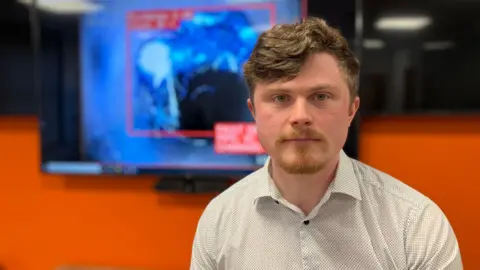
Josh Myrans has helped develop the use of AI to assess the sewerage network and find blockages
The AI project was an example of how “widespread monitoring of our environment using AI will enable us to understand it and manage it better”, said Richard Everson, professor of machine learning at the University of Exeter, who is also working on the trial.
He said: “At the moment, it relies on humans doing the laborious job of looking at the CCTV; something usually done by surveyors, in the cold, in the back of a van or something like that.
“There are lots of tasks like this, that we as people try to do and machines turn out to be very good at them.”
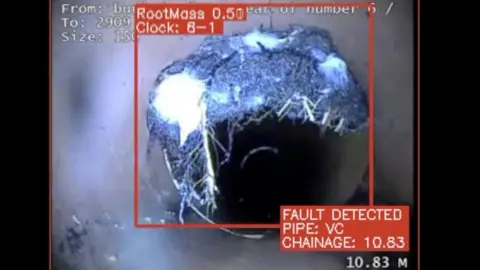 SWW
SWW
The AI is being also used to analyse CCTV of pipework to spot blocked or broken pipes
“Grease, fat, wet wipes” were some of things that could block sewers, said SWW catchment operator Peter Corps.
Mr Corps, who has been clearing sewers for 12 years, urged people to be more considerate about what went the toilet or sink, and “bin it, don’t flush it”.
He said: “Some of the time it’s down to problems with the pipes, but mostly it’s down to what people have flushed, unfortunately.”
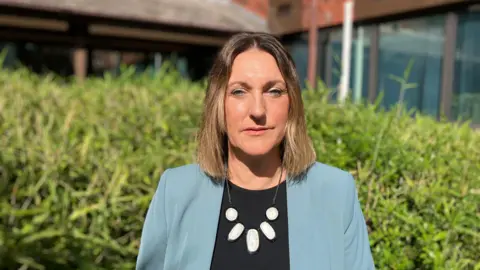
Helen Dobby said the trial had prevented around 200 pollutions and found up to 100 blockages in SWW’s sewer network
SWW said the trial was part of its Pollution Incident Reduction Plan, which was “fundamental to seeing our performance improve”, after being rated two out of four stars for its environmental performance.
Helen Dobby, head of environmental performance acknowledged “two stars is not where we want to be”.
She said: “We’re increasing training for new waste water operatives and we have a capital investment programme larger than any we have put forward before, £760m, being put into storm overflow reduction, so this initiative works alongside those things.”
South West Water provides water and sewerage services to Devon and Cornwall, plus small parts of Dorset and Somerset.

